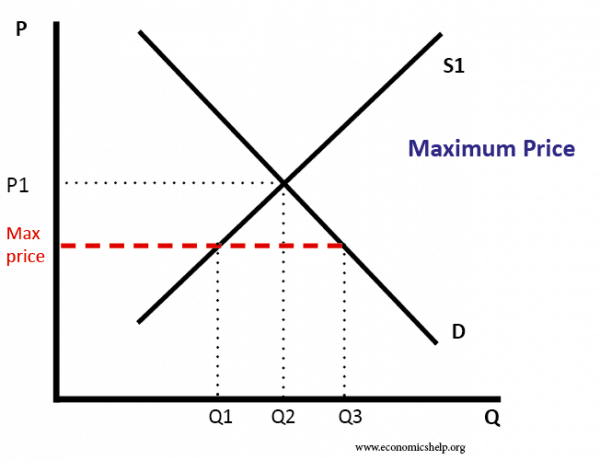Price floor has been found to be of great importance in the labour wage market.
Econ def of price floor.
Price ceiling is a situation when the price charged is more than or less than the equilibrium price determined by market forces of demand and supply.
Dictionary economics corporate finance roth ira stocks mutual funds etfs.
This control may be higher or lower than the equilibrium price that the market determines for demand and supply.
Minimum wage is an example of a wage floor and functions as a minimum price per hour that a worker must be paid as determined by federal and state governments.
Governments usually set up a price floor in order to ensure that the market price of a commodity does not fall below a level that would threaten the financial existence of producers of the commodity.
The most common price floor is the minimum wage the minimum price that can be payed for labor.
By observation it has been found that lower price floors are ineffective.
A price floor is the lowest legal price a commodity can be sold at.
It will provide key definitions and examples to assist with illustrating the concept.
Price floors are also used often in agriculture to try to protect farmers.
A price floor is a government or group imposed price control or limit on how low a price can be charged for a product good commodity or service.
Price floor is a price control typically set by the government that limits the minimum price a company is allows to charge for a product or service its aim is to increase companies interest in manufacturing the product and increase the overall supply in the market place.
The opposite of a price ceiling is a price floor which sets a minimum price at which a product or service can be sold.
But this is a control or limit on how low a price can be charged for any commodity.
Price ceiling has been found to be of great importance in the house rent market.
Like price ceiling price floor is also a measure of price control imposed by the government.
The equilibrium price commonly called the market price is the price where economic forces such as supply and demand are balanced and in the absence of external.
A price floor must be higher than the equilibrium price in order to be effective.
Price floor is a situation when the price charged is more than or less than the equilibrium price determined by market forces of demand and supply.
A price floor is an established lower boundary on the price of a commodity in the market.
It is legal minimum price set by the government on particular goods and services in order to prevent producers from being paid very less price.
Price floors are used by the government to prevent prices from being too low.

